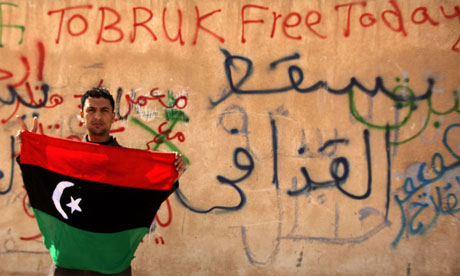Monday, February 28, 2011
'Inside Job' Director Excoriates Wall Street
LOS ANGELES - "Inside Job," a film blaming financial institutions for triggering the worst financial crisis since the Great Depression, won the Academy Award for best documentary on Sunday.
 The winners of the Best Documentary Feature 'Inside Job,' Charles Ferguson and Audrey Marrs address the audience the 83rd Annual Academy Awards at the Kodak Theatre on February 27, 2011 in Hollywood, California. AFP PHOTO / GABRIEL BOUYSDirector Charles Ferguson started off his acceptance speech lamenting that "not a single financial executive has gone to jail and that is wrong," drawing applause from the Hollywood celebrity audience.
The winners of the Best Documentary Feature 'Inside Job,' Charles Ferguson and Audrey Marrs address the audience the 83rd Annual Academy Awards at the Kodak Theatre on February 27, 2011 in Hollywood, California. AFP PHOTO / GABRIEL BOUYSDirector Charles Ferguson started off his acceptance speech lamenting that "not a single financial executive has gone to jail and that is wrong," drawing applause from the Hollywood celebrity audience.
Sunday, February 27, 2011
Can the US have a Tahrir moment?
Friday, February 25, 2011
Wittgenstein
Thursday, February 24, 2011
Wednesday, February 23, 2011
Las fortunas de la cleptocracia
Los Gadafi, como los Ben Ali y los Mubarak, controlaban los principales sectores económicos de sus países.

Getting Over a Breakup Is Like Getting Over Cocaine
Effects of Cell Phone Radiofrequency Signal Exposure on Brain Glucose Metabolism

Tuesday, February 22, 2011
Monday, February 21, 2011
Sunday, February 20, 2011
US economics: One big Ponzi scheme
At the same time, the people investigating Madoff are making a small fortune. According to the Financial Times: "The army of lawyers and consultants helping to recover funds from Bernard Madoff's $19.6bn fraud stand to earn more than $1.3bn in fees, according to new figures that detail the cost of liquidating the huge Ponzi scheme."
The best reporting on this subject is not in the mainstream press but in a music magazine, Rolling Stone, where Matt Taibbi investigates why the whole of Wall Street is not in jail: "Financial crooks brought down the world’s economy - but the feds are doing more to protect them than to prosecute them," he charges.
Andrew Leonard asks in Salon: "Should we trust him? After all, if there is one thing we know about Bernie Madoff, it is that he is one hell of a liar. But as evidence emerges that bank executives were exchanging emails wondering about Madoff’s amazing investment record, the possibility that the banks were purposefully looking the other way is not inconceivable."

Saturday, February 19, 2011
Friday, February 18, 2011
Thursday, February 17, 2011
Wednesday, February 16, 2011
Tuesday, February 15, 2011
Monday, February 14, 2011
Sunday, February 13, 2011
La rebeldía árabe. La historia no está escrita y toma direcciones que escapan a todas las teorías
By overcoming their fears, Cairo's protesters have changed the Arab world
What made the loss harder to take was the humiliation. A 45-year-old female officer slapped him across the face, spat at him, scattered his fruit on the ground and confiscated his electronic scales. Two of her colleagues joined in, beating him. As a coup de grace, the woman insulted Mohamed's dead father, a labourer who died of a heart attack when his eldest son was just three years old.













